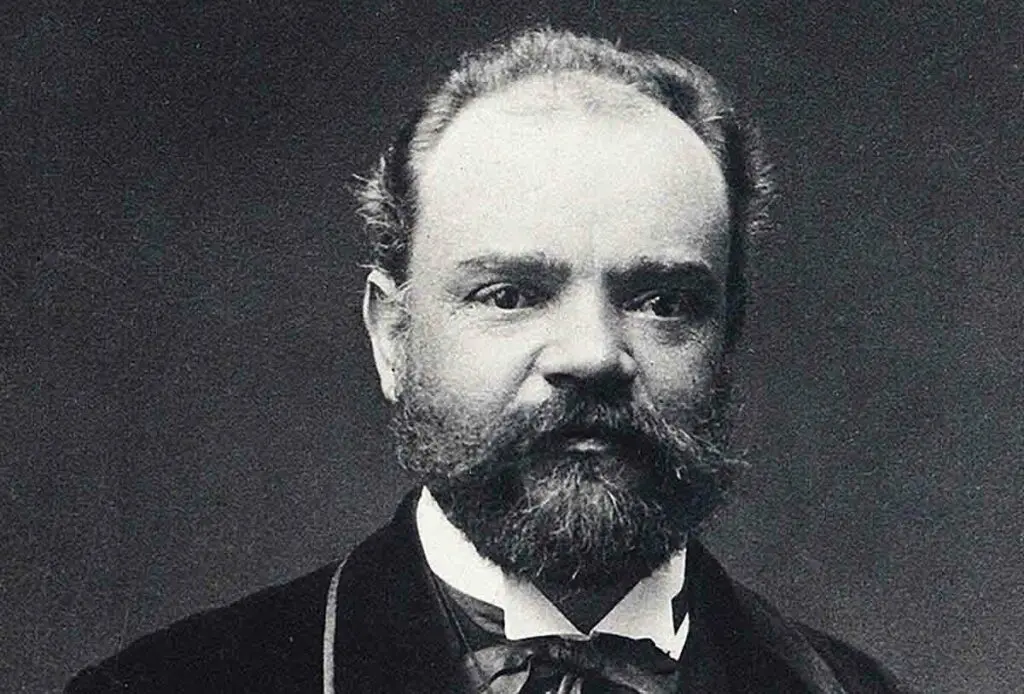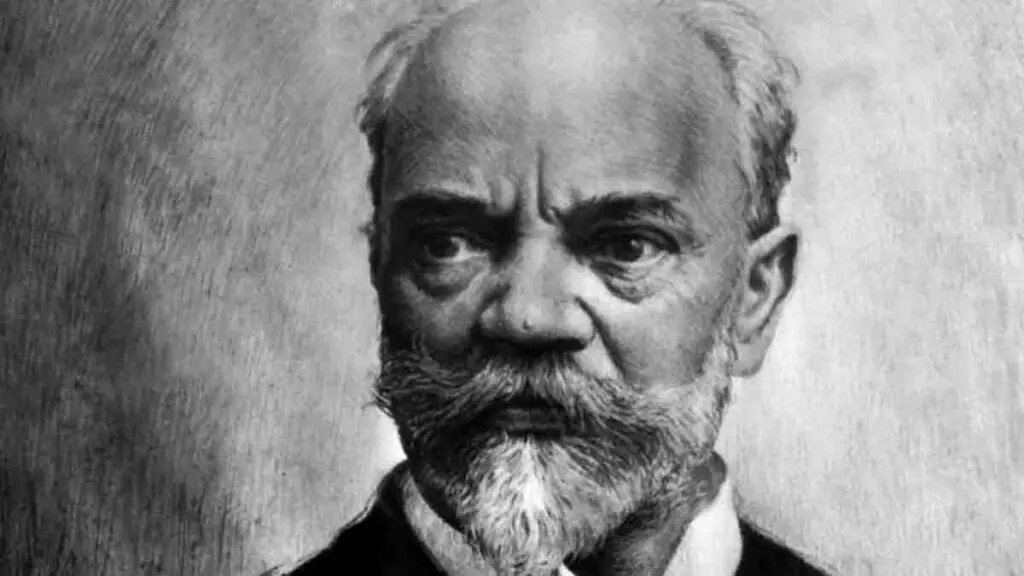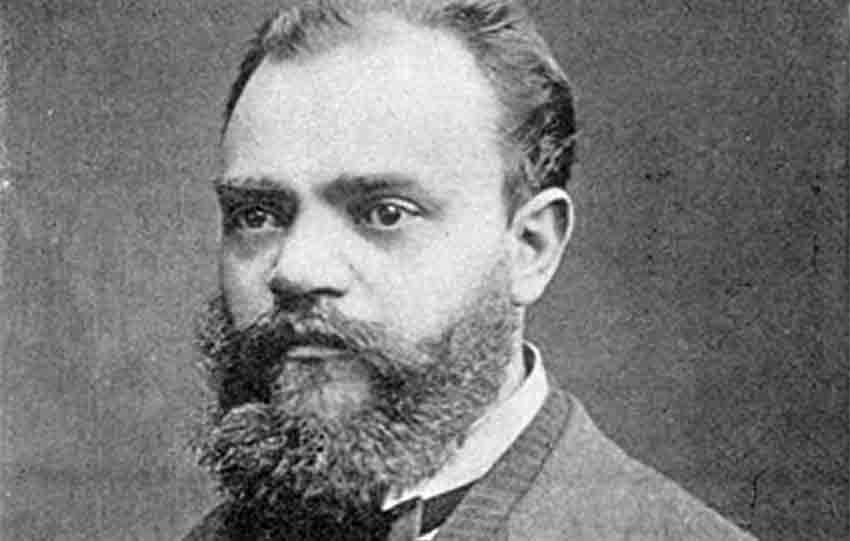Antonín Dvořák is one of the brightest Czech composers who worked in the genre of romanticism. In his works, he skillfully managed to combine the leitmotifs that are commonly called classical, as well as the traditional features of national music. He was not limited to one genre, and preferred to constantly experiment with music.

Childhood
The brilliant composer was born on September 8, 1841 in a provincial village, which was located near the Nelahozeves castle. Both parents were Czech. They valued the national traditions of their country.
The head of the family kept a small tavern, and, among other things, worked as a butcher. It is noteworthy that this did not prevent him from learning how to play several musical instruments. Later, he also introduced his son to music.
Antonin grew up as an obedient and docile boy. He always tried to help his parents in the development of the family business. However, his soul gravitated toward music. When the boy went to grade 1, his parents also contributed to the fact that he mastered the basics of musical literacy.
Antonin's musical education was handled by Josef Spitz. Only a few years were enough for the boy to master the violin. Later, he will delight the visitors of his father's tavern with his skillful play. Sometimes he took part in the organization of festive church events.
The Youth of Maestro Antonín Dvořák
After leaving school, he was sent to the town of Zlonitsy. The head of the family wanted his son to follow in his footsteps, and ordered him to learn the profession of a butcher. During his studies, Antonin lived with his uncle. He sent the boy to school, where he learned German. Dvorak was lucky because Kantor Antonin Leman turned out to be the teacher of his class. With a professional look, he appreciated the boy, and then taught him to play the organ and piano.
He did not retreat from music and study. Soon he managed to get a document to work as an apprentice. It is interesting that by that time the whole family had moved to permanent residence in Zlonitsy. Antonin himself was sent to continue his studies in Kamenets. After that, luck smiled at him. He became a student of the organ school in Prague.

Soon he received a position as an organist in the church. The new work inspired him to study the works of famous composers. At the same time, the idea came to him that he himself could develop a composer's talent in himself.
The creative path and music of the composer Antonín Dvořák
After studying at an educational institution, he decided not to leave Prague. He took the position of violist in the Karel Komzak chapel, and 10 years later - a musician in the orchestra of the "Provisional Theater". He had the honor of presenting to the public a number of brilliant compositions by Liszt, Wagner, Berlioz and Glinka.
Soon he became enamored with the desire to create an opera, and therefore resigned from the theater. He devoted a lot of time to the creation of the work "The King and the Coal Miner". The presentation of the opera took place in 1874.
The work of the novice composer was warmly received by the public. Long-awaited popularity fell upon Antonin. On the wave of success, he presents a number of other equally successful operas. We are talking about the compositions: "Wanda", "Stubborn", "Cunning Peasant".
The emotional upsurge was replaced by melancholy. There came a period when Dvorak was not up to creativity. The fact is that three children died during this period of time. He poured all the tragedy of the situation into his compositions. They were filled with bitterness and sadness.
The popularity of the composer Antonín Dvořák
Only by 1878 did he manage to cope with a heavy loss. His wife gave him a child. It was thanks to this event that Dvorak managed to tune in and change the approach to creating new works.
At this time, one of the music publishers orders a collection of plays "Slavic Dances" from the composer. After the publication of the work, music critics literally gave the maestro a standing ovation. Fans bought sheet music, and new orders came from the publisher.

He was at the height of his popularity. Newspapers wrote about him, which contributed to the fact that the concert, which took place during this period of time, was held in a full hall. They did not want to let Antonin leave the stage.
At the same time, he was elected a member of the Craftsman's Conversation association. Soon he led the direction of this union. The maestro began to act as a jury at prestigious music competitions. At this time, almost no concert could do without the performance of his brilliant works. They were admired. He was idolized.
In 1901, another significant event took place. The maestro presented the opera "Mermaid" to fans of his work. To date, this work is considered almost the most important asset of the composer.
During this period of time, the health of the musician began to deteriorate. He could not concentrate on composing compositions. Antonin's last work was Armida.
Details of the composer's personal life
In 1873, the composer legalized relations with a woman named Anna Chermakova. She had an excellent pedigree. Anna was the daughter of a noble jeweler.
The personal life of the maestro was very successful. The only caveat was that Antonin could not improve his financial situation for a long time. Children were quickly born in the family, and, of course, spending increased along with this.
When the family was practically broke, the maestro was forced to apply for a scholarship for low-income artists. Later, he was called to a government agency, where he, to confirm his creative activity, played several tunes.
In the end, he was given help, and it turned out to be very useful, since children died one after another during this period of time. Fortunately, over time, the financial situation of the family improved, and they could afford a normal existence.
Interesting facts about the maestro
- He was humble and pious. He was relaxed by walks in nature. Beautiful places inspired the maestro to compose new works.
- Dvořák is the most common surname in the Czech Republic.
- There is a museum in Prague dedicated to the brilliant composer.
- He was very exacting in his work. For example, the opera The King and the Coal Miner, he remade several times.
- "The King and the Collier" was staged several times in the theaters of Prague, but in other theaters it never took place.
The last years of Antonín Dvořák's life
He died on May 1, 1904. Death befell the maestro due to a brain hemorrhage. The composer's body was buried in Prague. The rich heritage of Antonin does not give the public a chance to forget about the great maestro. Today, his immortal works are heard not only in theaters, but also in modern cinema.



